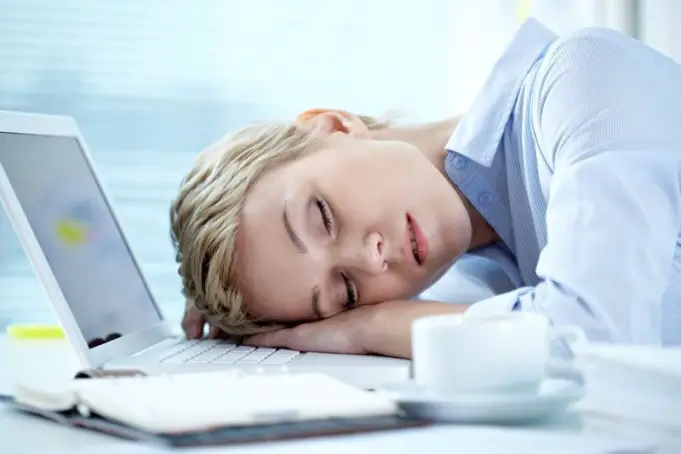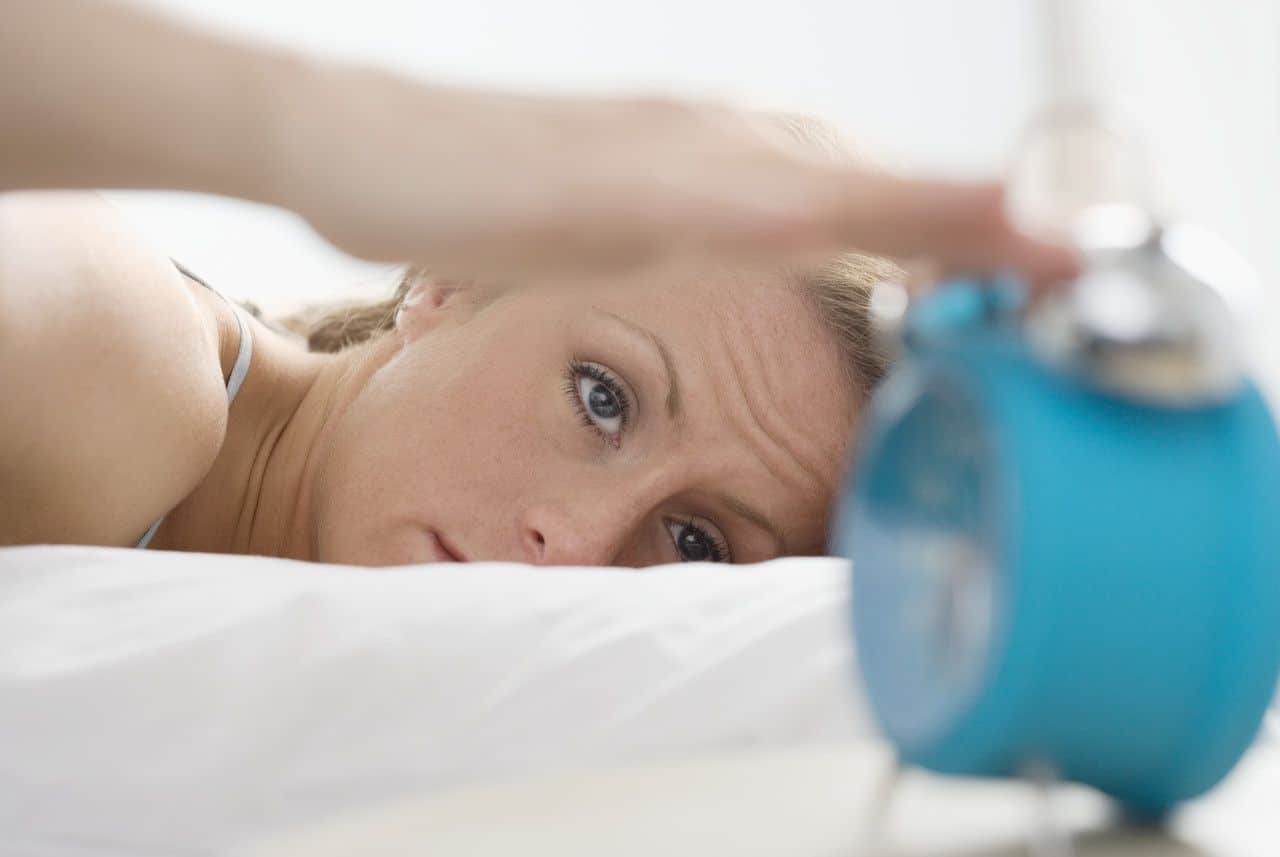Hypersomnia or hypersomnolence; also known as ‘excessive daytime sleepiness’ (EDS) is a sleep disorder that is characterized by inability to stay awake during the day time even if one spent the whole night hours sleeping. It is the total opposite of insomnia.
People who are affected by this disease can fall asleep at any time no matter what they are doing; they can even fall asleep while driving or at work.
This neurological disorder is believed to affect 5% of the population of the world with men having the having the highest prevalence due to sleep apnea syndromes.
Note that hypersomnia is different from narcolepsy; narcolepsy is a medical condition characterized by sudden unpreventable sleep attacks during the day while in hypersomnia people can stay awake on their own but they feel fatigued and drowsy.
Signs and symptoms of hypersomnia are feeling excessively sleepy during the day, drowsiness, trouble thinking clearly, lack of energy, irritability, anxiety, loss of appetite, prolonged night time sleep, slow speech, slow thinking, restlessness, memory problems, loss of reflexes, hallucinations, prolonged night time sleep, severe sleep inertia on waking and difficulty waking up in the morning and inability to achieve the feeling of refreshment that sleep bestows.
Chronic sufferers can sleep up to 18 hours a day and more and they will still not have the feeling of refreshment when they awake; this sleep disorder starts quietly and slowly develops over period of years, typically starting in late adolescence and at this stage it is often confused with normal teenage sleep issues like delayed sleep phase syndrome.
Hypersomnia is divided into three main groups based on the causes; primary hypersomnia is caused by problems in the brain system and functions that regulate sleep and alertness while secondary hypersomnia happens as a result of a medical condition, physical trauma or any other factor like food that cause insufficient sleep or fatigue, idiopathic hypersomnia have no known cause.
Normal hypersomnia is a term given to naturally long sleepers; kleine-levin syndrome is a more extreme form of recurrent hypersomnia, it commonly called “sleeping beauty syndrome”; the sufferers are mostly teenage boys, they can sleep for several days at a time and then they wake up ravenously Hungary, irritable and hypersexual.
There are many causes of hypersomnia; some of them are:
Sleep disorders like periodic limb movement disorder and restless leg syndrome.
- Sleep apnea: This is a medical condition characterized by interruptions in breathing during sleep; it is the most frequent cause of secondary hypersomnia.
- Some medical conditions: like multiple sclerosis, epilepsy, encephalitis, depression and severe dehydration.
- Physical problems like tumor, head trauma and dysfunction of the autonomic or central nervous system.
- Dehydration; lack of sufficient water in the body can affect the brain negatively and this can impair the functions of the brain and affect mood, sleep, memory and other brain functions.
- Sleep deprivation at night
- Drug or alcohol abuse
- Obesity
- Some drugs like tranquilizers or antihistamines.
- Genetics; having relatives with this condition puts one at a high risk of having this disorder. Some scientists believe that Somnogen a sleep inducing substance in the spinal fluid may be responsible.
Too much of sleep or long term side effects of hypersomnia can lead to lots of undesirable health conditions like heart disease, diabetes, depression, headaches, back pain, obesity, and increased death risk.
For now, there is no cure for hypersomnia but there are several treatments that can improve the patients’ quality of life; treatment can also depend on the specific cause or causes.
Doctors can also prescribe drugs including stimulants, antidepressants to treat it; sometimes drugs that are used to treat narcolepsy are also given to hypersomnia patients, some of the drugs are amphetamine, methylphenidate and modafinil, these drugs are stimulants and help to keep one awake.
Doctors can also prescribe a treatment called ‘continuous positive airway pressure or CPAP. This involves wearing a cap over your nose while you are sleeping; a machine is connected to the mask and the main aim of the machine is to deliver a continuous flow of oxygen into the nostrils and this helps in keeping the airways open.
Sodium oxybate is another is another medication that hypersomnia patients take at bedtime and during the night again; it promotes deep sleep and improves day time sleepiness in patients with narcolepsy.
Sometimes, medications can cause this; so if you started having this funny experience when you started a particular medication; it is advisable to meet your doctor so that he change it for you and help you get off the pill if you have been taking it for a long time.
Also try and eliminate alcohol and caffeine, improve your diet by regularly eating whole healthy foods with lots of fruits and vegetables; this will help to maintain the energy levels of the body naturally. Try getting a regular sleep schedule and avoid certain activities especially around bed time that can disrupt sleep.
With proper medical treatment, good follow up, healthy lifestyle and good sleep hygiene, the life quality of hypersomniacs will improve greatly although for now this disorder has no cure.
If you are suffering from this condition you should try to get enough sleep at night so that you will not feel sleepy during the day, nine hours of uninterrupted night sleep is OK.
You can also set a regular wake time even on weekends to help you overcome this problem; adopt an early bed time routine like sleeping fifteen to thirty minutes earlier will help the condition if you can consecutively.
Take your meals at the right time, this will improve your circadian rhythms; regular exercise like 30 minutes every day will affect your sleep life positively, avoid stress and don’t go to bed when you are tired. This will prevent you from falling asleep, avoid late afternoon nap and practice soothing relaxation.
Although there some medical expert who don’t believe in using stimulants because they see it as treating the symptoms and not the root cause and most of them don’t work; also there are no confirmed herbal remedies or cures because the root cause of hypersomnia is not yet known, but some experienced herbalists claim that clove and cinnamon help one to be alert during the day.
So when you are feeling sleepy, you can put two cloves in your mouth, you can also add them to your meal and take them as herbal tea in the morning.
Some herbalists also believe that wild lettuce is very effective against hypersomnia; other effective herbs for hypersomnia are cocculus, St. John’s wort, valerian, lavender, yellow oleander, solanum xanthoc and fennel.
You can take fennel herbal tea morning and evening; boil 3 or 4 table spoons of fennel in one liter of water till the water reduce to half; you can add some rock salt, take this drink morning and evening to help your condition.
Other herbal teas to try are chamomile tea and decaffeinated green tea; decaffeinated green tea contains theanine which helps to promote deep sleep, try and take a cup of this tea before bedtime. Chamomile tea supports and promotes good sleep. You can also take a cup before bed time.
Try to include these foods in your dinner; it will aid your sleep habit
- Fish-fish like cod, trout, halibut, tuna and salmon are very rich in vitamin B6; this vitamin is needed for the production of melatonin, a sleep inducing hormone that is triggered by darkness. Cereals and chick peas are also rich in vitamin B6.
- Whole grains like rice bran, bran, oats etc. are rich in Magnesium which helps relaxation, good sleep and a feeling of achievement when waking up I the morning.
- Bananas too promote good sleep; they are high in potassium and vitamin B6 which is needed for the production of melatonin.
- Almonds are rich in Magnesium, the relaxation mineral; it relaxes the muscles and enhance sleep; eat ¼ cup of almonds before going to bed, it will shift you from your awake mood to your rest-and-digest mood.
- Yogurts are rich sources of calcium which can fight sleep difficulties and disorder.
- Kales are rich sources of calcium and studies have linked calcium deficiency to poor sleep. Collards, spinach and green leafy vegetables in general are rich in calcium.
- Tart cherry juice is rich in melatonin which aids good sleep.
Be careful when presented with any herbal concoction or formula to use for hypersomnia because there are confirmed herbal cures and the cause is not known; also before you try any herb or supplement, try and consult your doctor so that it will not lead to any other medical complications.
If you are opportune, try and consult a sleep specialist; he or she will help you to treat this problem through cognitive behavioral therapy and behavioral counseling to prevent daytime sleepiness.













